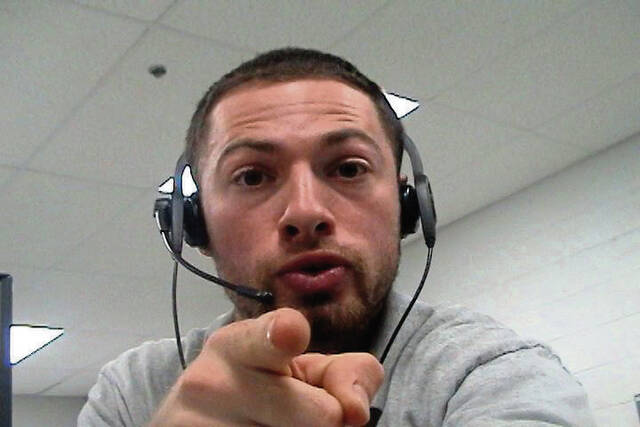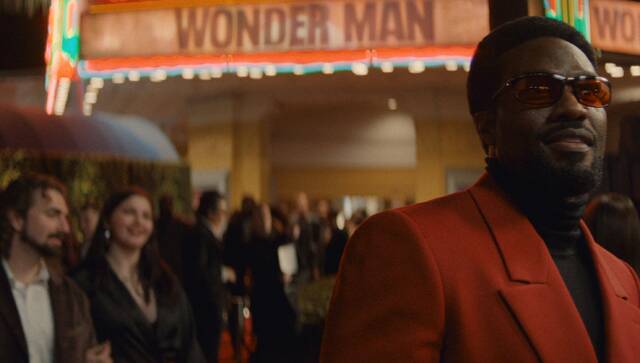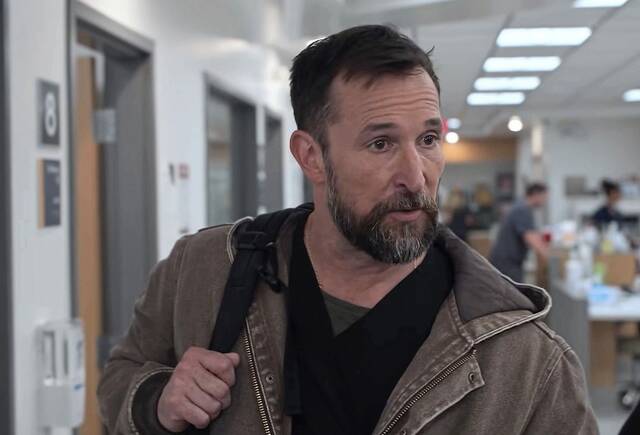Trib Total Media TV writer Rob Owen offers a viewing tip for the coming week.
HBO documentaries come in all shapes and sizes, but “Telemarketers” (10 p.m. tonight) may be one of the most DIY homemade efforts yet.
A shaggy, shambolic docu-series not without its charms, “Telemarketers” takes viewers behind the scenes of the telemarketing industry.
Based on the number of local news clips strewn throughout its three episodes — including footage from a WTAE-TV report — it’s clear telemarketing has been covered elsewhere over the past 20 years, but “Telemarketers” comes from those who actually worked as telemarketers, offering a unique vantage point. Yet, ultimately, the show fails to deliver many new revelations.
Sam Lipman-Stern started working for New Jersey telemarketer Civic Development Group as a 14-year-old high school dropout. It’s where he met a bevy of ex-convicts and drug dealers in an office that is shown to be “a crazy and insane place” where anything and everything seemed permissible, including drinking and doing illegal drugs on the job.
At CDG, Lipman-Stern met Pat Pespas, who becomes Sam’s partner in making “Telemarketers,” which utilizes crackly VHS video Sam filmed at CDG in the early 2000s.
At the start, CDG was a fundraising company that worked on behalf of multiple charities. CDG would keep 90% of what was donated, and the charities only got the small remainder. But in those early days, the telemarketers would answer honestly if a donor asked how much went to the charity.
Then things changed, and the telemarketers were encouraged to lie and claim 100% of the donation went to the charity.
“Telemarketers” turns into an investigation into Fraternal Order of Police union chapters that partnered with telemarketers, claiming to raise funds for injured police officers or the families of officers killed in the line of duty. “Telemarketers” alleges the money went to the union and not officers in need.
Pespas evinces a righteous anger about the fraudulent nature of the work he once did, how it preyed on elderly donors on fixed incomes and failed to benefit police officers or their families. But Pespas also is an unreliable addict who often disappears — “Telemarketers” suggests he is off getting high — including during a scheduled interview for the series.
Lipman-Stern, who on several occasions announces his intention to be a self-styled Michael Moore (“Roger & Me”), digs up a trove of documents that implicate several FOPs in fraudulent telemarketing schemes and the amateur filmmakers attempt to get congressional action on the issue.
U.S. Sen. Richard Blumenthal comes off looking particularly bad, promising his staff will look into Lipman-Stern’s and Pespas’ concerns and then apparently blowing them off.
In fairness, Pespas is not at all polished and gives off an undeniably sketchy vibe. Pespas even mucks up one ambush interview with the national FOP president by calling him by the wrong name.
Ultimately, “Telemarketers” succeeds more as a character study of a passel of shady individuals who don’t normally turn up on TV than it does as any sort of expose.







